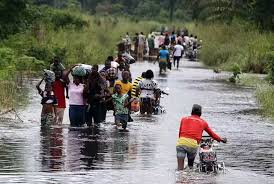
The print, broadcast, and online media in played a vital role during the Maiduguri flood crisis. When the disaster struck, both the international and local media promptly reported the situation, effectively drawing the attention of government and non-governmental organisations (NGOs) to provide critical aid to the affected individuals. While acknowledging the efforts of wealthy individuals, governments, and stakeholders in responding to the Maiduguri flood crisis, it is equally important to recognise the invaluable contributions of the media.
Despite the risks they faced, media professionals provided timely reports and effectively prompted government’s intervention, thereby facilitating aid to affected communities. One cannot overlook the media’s struggles to provide accurate and timely information to the public during the Maiduguri flood crisis. Many journalists, some of whom even participated in rescue efforts, risked their lives to report the disaster.
For instance, after the floodwaters receded in the Maiduguri metropolis and reporters returned to their destinations, some spent weeks recovering from critical psychological trauma. A BBC Hausa reporter, Imam Sale, who interviewed Governor Professor Babagana Umara Zulum of Borno state in the height of the crisis, shared a distressing account of what he witnessed. Shortly after his return from the assignment, he narrated how he experienced severe and sleep deprivation for nearly a week, haunted by the traumatic images of corpses floating on the devastated floodwaters.
Despite this personal turmoil, he demonstrated remarkable resilience in reporting the crisis. Other journalists and individuals who came to the aid of the victims of the Maiduguri flood also recounted the challenges they faced during and after the disaster. Furthermore, many national dailies in the country played a vital role in reporting the Maiduguri flood crisis, dedicating front pages, banner headlines and editorials to the situation.
This extensive coverage not only raised awareness but also appealed to the emotions of the government, NGOs, and wealthy individuals to provide support to victims. Indeed, the media deserve commendation for their contributions in tackling and providing support during the crisis. The dedication of these media houses and their personnel showcased the crucial role of the media in making the voices of the voiceless to heard, often at great personal cost.
In one of the reports on September 20, headlined ‘Maiduguri Flood: Victims in Dilemma after discharge from Camps,’ significantly drew government’s attention to the issue, prompting a thoughtful and accountable response. However, I urge the media to maintain scrutiny beyond the immediate crisis. As funds pour in from various sources, national and international, it’s crucial to monitor and provide a comprehensive report about how these resources are allocated and utilised for their intended purpose.
Aisha Ibrahim Goni, Mass Communication Department, Borno State University, Maiduguri..










